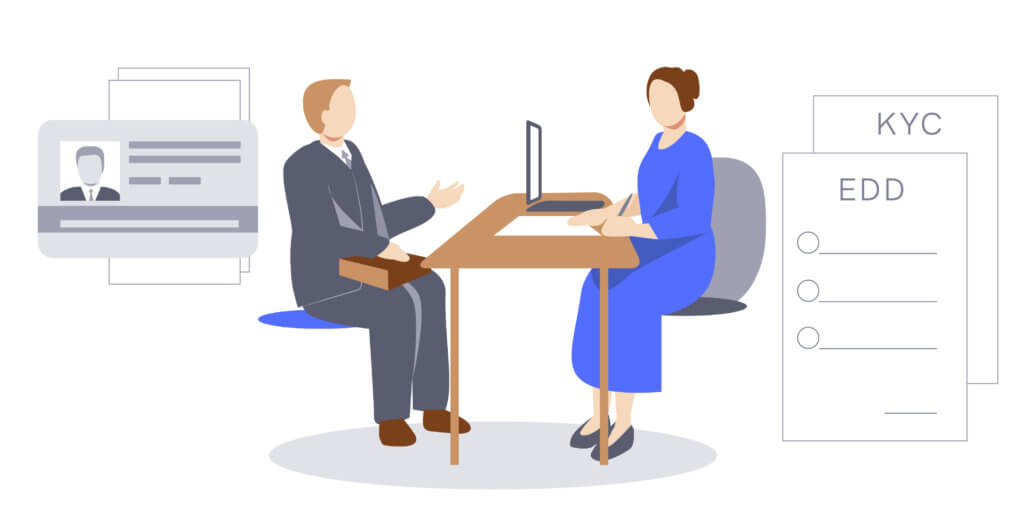
Enhanced Due Diligence is a critical tool in the fight against money laundering and fraud. EDD is a more thorough and rigorous form of due diligence that is used to identify and mitigate potential risks associated with a customer or transaction. It is typically used in situations where a higher level of risk is present, such as with high-value transactions, politically exposed persons, or businesses operating in high-risk industries.
The primary goal of Enhanced Due Diligence is to obtain a deeper understanding of the customer, their business, and their transactions.
This is accomplished through a combination of research and analysis, including the review of public records, financial statements, and other relevant information. For example, EDD may include a review of the customer’s business registration documents, tax records, and financial statements to ensure that the information provided by the customer is accurate and that the business is legitimate.
The use of advanced technology is an important aspect of Enhanced Due Diligence.
Data mining, predictive analytics, and artificial intelligence can be used to identify patterns and anomalies that may indicate money laundering or fraud. For example, data mining can be used to identify unusual transactions or patterns of transactions that may indicate money laundering, while predictive analytics can be used to identify potential fraud risks based on past behavior.
Enhanced Due Diligence plays a critical role in the fight against money laundering.
Money launderers often use complex financial structures and transactions to hide the true origin of the funds, making it difficult to detect. Enhanced Due Diligence can help financial institutions and other organizations identify these complex structures and transactions and take appropriate action to prevent money laundering. For example, EDD may include a review of the customer’s beneficial ownership, which can help identify individuals or entities that may be trying to hide their involvement in a transaction.
Enhanced Due Diligence also plays a key role in the fight against fraud.
Fraudsters often use sophisticated methods to conceal their identity and activities, making it difficult to detect. Enhanced Due Diligence can help organizations identify and mitigate fraud risks by providing a more comprehensive understanding of the customer and their activities. For example, EDD may include a review of the customer’s credit history and other financial information to identify any red flags that may indicate fraud.
Enhanced Due Diligence plays a crucial role in compliance with anti-money laundering (AML) and know-your-customer (KYC) regulations.
Many countries have enacted laws and regulations requiring financial institutions and other organizations to conduct due diligence on their customers and transactions to prevent money laundering and fraud. Enhanced Due Diligence can help organizations comply with these regulations by providing a more robust and effective way to identify and mitigate risks. For example, EDD may include a review of the customer’s political exposure, which can help identify individuals or entities that may be at higher risk of money laundering or fraud.
Enhanced Due Diligence also includes the verification of the customer’s identity and address.
This can be done through various means such as reviewing government-issued identification, checking the customer’s address against public records or third-party verification services, and conducting face-to-face interviews. This helps to ensure that the customer is who they claim to be and helps to prevent identity fraud.
In summary, Enhanced Due Diligence is a thorough and rigorous form of due diligence that is used to identify and mitigate potential risks associated with a customer or transaction. It helps organizations obtain a deeper understanding of the customer, their business, and their transactions. The use of advanced technology, such as data mining, predictive analytics, and artificial intelligence, is an important aspect of Enhanced Due Diligence. It plays a critical role in the fight against money laundering and fraud and helps organizations comply with anti-money laundering and know-your-customer regulations.

